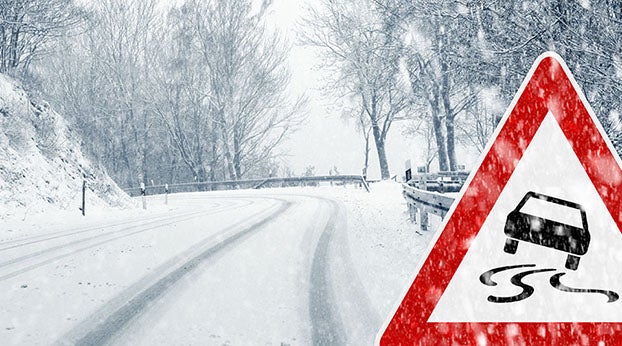Adams goes over KY election reform
Published 3:48 pm Tuesday, April 27, 2021

- Secretary of State
|
Getting your Trinity Audio player ready...
|
While some battles in politics may not always be easy, election reform in Kentucky has seen bipartisan action in House Bill 574, which some note as some of the largest steps taken since 1891 thanks to Secretary of State Michael G. Adams.
Coming out of 2020, Adams said he believes Kentucky had the best, or at least one of the best elections it has ever seen.
While speaking on factors like a high turnout of voters, outstanding public safety amid a pandemic and more, Adams said Kentucky not only had a safe election, but one of the most secure elections he has ever seen since his start in politics.
“This was the least amount of irregularities I’ve seen since getting involved with politics. We felt that there were some things we changed that were best left not repeated, they were pandemic-specific adjustments, but there were other things we changed that we thought would translate really well to other elections in the future, regardless of the pandemic,” he said.
Starting in November, Adams and his office asked county clerk’s for their opinions on the 2020 election, hearing from roughly 115 of them before sitting down with legislators. As a result, Adams said he felt confident with the balance of access and security put into the election.
“We’ve proven you can have an accessible election and a secure election at the same time. You don’t have to trade one for the other, you can have both,” he said. “We also proved that you get a better product when you have a better process. When we had Democrats and Republicans working together last year, the process was better and it looked better. People didn’t think the election was rigged because one party was writing the election rules, it was bipartisan. I think that helped contribute to public confidence and the high turn out.”
Feeding off last year’s success, Adams sought to work with legislators on House Bill 574 to bring about a similar outcome of Democrats and Republicans working together in Kentucky to bring about much needed election reform.
Adams said there were four things bill makers kept from changes made to the 2020 election, made possible through his executive orders. In addition, three new improvements were agreed on that Adams did not have power to address on his own.
“First, in our last election most voters voted in-person early. Around 70 percent voted in person, not absentee. Even in a pandemic and even with easier access to absentee ballots, people still wanted to vote in person and we get it. That’s our culture in Kentucky. We’re a vote-in-person state,” he said.
Because of this, legislators decided to give voters the power to cast in-person ballots the Thursday, Friday and Saturday before Election Day.
“That Saturday is especially important for working people who may have trouble getting to the polls on a Tuesday. We thought that was a good compromise between just having the one day to vote like we’ve had since 1891, and on the other hand, having weeks and weeks to go vote.
“When you have weeks and weeks to go vote, it just spreads the turn out over a longer period of time, increasing the tax payer cost in the counties and making it harder to run for office. What we saw, almost two-to-one, was that people preferred to not vote on Election Day, but we saw a big spike on the Thursday, Friday and Saturday before it.”
The bill also permits counties to provide vote centers where residents from any precinct can cast a ballot, establish drop boxes for those submitting absentee ballots and require counties to begin the process of switching to voting systems that can process paper ballots.
“This is optional, and we let counties decide if they want to do this or not,” he said. “In a county like Harlan, my expectation is you all will prefer to go back to the old system of the precincts to be open. That’s probably better for a county like Harlan that is so spread out, but if you’re a county like Fayette or Jefferson, it may be better for you to have a centralized location downtown for people to go.”
The next item was the absentee ballot portal, something Adams said was one of the most important things in the election last year.
“The portal is good because it makes it easier to get an absentee ballot and makes it easier for the clerk to process those and easier for me to monitor them,” he said.
In 2018, 7.5 percent of the absentee ballots were thrown away and voters were not notified about them, Adams said.
“Now in this bill, the clerk can’t throw the ballot out without first trying to contact the voter and verify the signature of the voter. This is how we help determine the voter’s identity through the Voter ID Program, we check the signatures, but people’s signatures can change,” he said. “Mine has changed since I started voting. My grandparents are still alive and their signatures have changed a lot since the 1950s.”
Three additional changes in the bill are brand new, including a motion to ban ballot harvesting, aggressive voter roll maintenance and the security of electronic machines versus traditional paper ballots.
“Ballot harvesting is when outside groups go door-to-door to collect absentee ballots. That leads to a situation where you have potential for fraud and duress. They could also take ballots and just fail to deliver them or throw them out,” he said.
Adams said legislators moved to make ballot harvesting a felony, which comes a couple short years after re-votes would need to be completed because of the amount of fraud taking place from the harvesting process.
“The second loophole we closed was in association with the maintenance of voter rolls,” he said. “I’ve been very aggressive taking people off our rolls who have died, and we’ve had several months of taking people who have died off the rolls than adding voters who were still living. Our rolls were not clean, and they had thousands of people on them that shouldn’t be there, according to a federal judge in a lawsuit against the state, who made that finding.”
Adams said one loophole keeping him from getting the voter roll back into compliance was a law that previously wouldn’t allow him to take people who had moved out of the state off the roll.
“That leads to double voting because they’re registered in both places, so now we’ve got permission to take those people off,” he said. “Over the next couple of years, you’ll see us remove hundreds of thousands of people off our rolls that are voting from other states.”
Lastly, Adams said people feel more secure voting on a paper ballot than voting on an electronic machine.
“You’ve got Democrats who think Hillary Clinton got the election stolen through the machines. You’ve got Republicans who think Matt Bevin got the election stolen from him through the machines,” he said. “They’re both wrong, but a lot of people have concerns about the machines so we began transitioning away from them.”
Adams said the paper ballots that are counted through a counter is the best of both worlds because you have the security of a paper trail with the speed of a quick count.
Some counties, like Jefferson, have already transitioned to all paper ballots, but some have a hybrid system of both. Now, the bill will help in transitioning to all paper ballots over the next couple of years while the state applies for grants to help counties with the cost to do so.
Adams said with the onset of major changes to Kentucky’s election process, some individuals have voiced opinions of concern and worry about change.
“I got a letter from a coal miner in Whitesburg recently, and he said not to change the rules and the election was better before these changes. I wrote a nice letter back, and I said, ‘sir, you’re just not right,’” he said. “You only got one day to vote and you had to vote between 6 a.m. and 6 p.m. If you work long hours or Tuesday’s not good for you, no one cared, you’re out of luck.
“Our elections were less secure. Ballots were mailed all around the state without knowing here in Frankfort the status of those. Our elections were overrated, and don’t take it from me, there was a national publication that rated each state’s process, and we were 44th when I took office.”
Adams said the laws had not been revisited since the horse and buggy era of 1891, showing how outdated the state’s election process was.
“My goodness, the whole reason we have a legislature is that we understand our laws get outdated and it’s time to modernize every so often, and so we were long overdue for this change,” he said.
Because of the changes, Adams said voter turnout across the board went up, noting it showed it didn’t favor one party over the other.
Those with questions regarding House Bill 574 can contact Adams’ office through the Secretary of State website at sos.ky.gov/pages/contact.aspx or by calling 502-564-3490.





